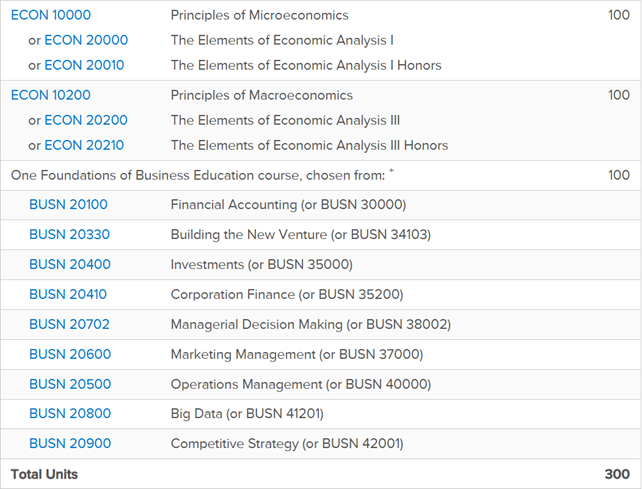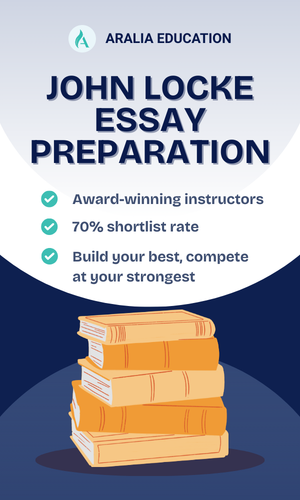Economics is consistently one of the most popular majors for students and is taught at almost all universities worldwide. With an economics degree, graduates can enjoy diverse career opportunities, including teaching, research, postgraduate studies, finance, work at central banks and major commercial banks, and roles with government agencies, nonprofits, and multinational corporations. Economics students can also easily combine their major with minors in related fields such as finance, accounting, or politics.
1. Differences in Curriculum Content
High school economics introduces students to foundational concepts like supply and demand, GDP, opportunity cost, and personal finance, offering a broad overview of how markets function. College economics, in contrast, is more rigorous, mathematically intensive, and specialized, and it explores fields such as econometrics, behavioral economics, international trade, and financial economics. While high school courses focus on general understanding, college programs emphasize abstract modeling, empirical analysis, and advanced economic theory.
Finance, on the other hand, applies these principles to managing money, investments, and financial markets, emphasizing practical strategies for wealth management, corporate finance, and risk assessment. For a deeper understanding of foundational concepts before diving into finance, see our article on Finance vs. Economics.
High School Economics
High school economics programs are typically divided into two branches: microeconomics and macroeconomics. Students learn foundational concepts such as opportunity cost, supply and demand, Gross Domestic Product (GDP), and employment. Some curricula also include personal finance, international trade, and studies of the different economic systems. This content is similar to introductory macro- and microeconomics courses at the college level, providing a general overview of how markets work and modern economic trends. For students interested in the benefits of studying economics early, see this related article.
College Economics
At university, whether enrolled in a dedicated economics major or introductory courses, students explore deeper, more rigorous, and mathematically intensive studies. College economics emphasizes the development and testing of abstract models of human behavior using empirical methods. This field offers a greater range and specialization, such as:
- Econometrics: The use of statistical methods to analyze economic data.
- Behavioral Economics: A field that studies the psychological and cognitive factors affecting economic decisions.
- Financial Economics: Covers financial markets, investments, and corporate finance.
- International Economics: Analyzes international trade, foreign exchange markets, and globalization.
- History of Economic Thought: Examines the historical evolution of economic ideas and influential economists.
- Development Economics: Studies economic problems and policies in developing countries.
For example, at the University of Chicago, the BA in Economics offers multiple specializations. All students majoring in Economics are required to take core courses such as The Elements of Economic Analysis I & II, but the elective courses may vary. Below is the University of Chicago’s curriculum for the Economics major:

Aralia Students Excel in Economics Competitions
2. Differences in Necessary Skillsets
High School Economics
High school economics, often categorized as a general social studies or introductory elective (such as AP or IB), mainly focuses on memorization and comprehension of basic concepts and models. Students are expected to apply these ideas to everyday situations and current events, interpret basic graphs and tables, but without using complex mathematical analysis.
College Economics
College economics, especially beyond introductory courses, requires a more quantitative and abstract approach, emphasizing analytical and mathematical skills. The three most crucial skills for success are:
- Advanced quantitative skills: Students must be proficient in calculus and statistical analysis, including advanced statistical methods and software.
- Deep analytical and critical thinking: College courses focus on understanding not just “what” happens in economics, but “why” and “how to prove it”.
- Technical and computational skills: Proficiency in statistical software and programming languages such as R, Stata, or Python is increasingly essential, especially in econometrics.
3. Preparing for College Economics
Embrace the math
Economics is deeply quantitative. Therefore, you should be familiar with, or even master, these mathematical concepts in Economics classes:
- Calculus: This is non-negotiable because derivatives are extensively used in microeconomics to find optimal outcomes, such as profit maximization. Understanding how things change at the margin is central to economic thought. You can pursue AP Calculus AB and AP Calculus BC to equip yourself with this knowledge.
- Statistics: Econometrics, the branch of economics that applies statistical methods to economic data, will be a core part of the college curriculum. Concepts like probability, hypothesis testing, and regression analysis are vital for analyzing real-world data and drawing meaningful conclusions.
- Algebra: Strong algebraic skills, such as working with functions, graphing, and solving systems of equations, are fundamental for understanding all economic models and relationships.
Cultivating Key Skillsets Through Impactful Extracurriculars:
Extracurriculars offer practical experience and build leadership, analytical, and communication abilities valued by economics programs. High school students may pursue economic or financial literacy through clubs like DECA or Future Business Leaders of America (FBLA). They can also start an economics or investment club, or conduct independent research projects, such as analyzing local housing prices. Another way they can develop important skills is by becoming a research assistant for a university professor or starting a blog/newspaper column on local economic issues.
Participating in High School Economics Competitions:
Competitions help students consolidate learning, test their analytical skills under pressure, and showcase their passion for economics. They often mirror the rigor and problem-solving required in different university programs. This detailed guide to economics competitions for high school students will help you find competitions that best fit your interests.
One of the most prestigious competitions in this field is the National Economics Challenge (NEC) organized by the Council for Economic Education. The National Economics Challenge is the only annual economics competition for high school students, designed to test their understanding of the world economy, specifically microeconomics, macroeconomics, international topics, and current events. In 2019, more than 10,000 high school students from 45 states participated nationwide. In addition, the National Personal Finance Challenge (NPFC), also hosted by the Council for Economic Education (CEE), is another highly competitive and well-recognized tournament for high school students. This team-based competition equips students with knowledge and financial literacy skills to make informed decisions about earning income, spending, saving, investing, and managing credit and risk.
85% of Aralia Students Place in Top Writing Competitions
4. Take Economics classes with Aralia
Both competitions are set to return in 2026 – so there’s no better time to start preparing than now! Aralia now offers the National Economics Challenge Prep and the National Personal Finance Challenge Preparation courses, providing students with comprehensive knowledge and skills to confidently tackle both competitions. Participants will be grouped into small teams and guided by experienced instructors as they train and compete together.
By proactively engaging in these areas during your time in high school, you’ll not only build a robust foundation for a college economics major, but you will also demonstrate to the admissions committees your genuine interest, quantitative aptitude, and readiness for rigorous academic inquiry.

National Economics Challenge Prep
The National Economics Challenge Prep is a course designed to prepare students for the National Economics Challenge, a nationwide competition that tests their knowledge and understanding of economics. This course will cover a variety of topics related to economics, including microeconomics, macroeconomics, international economics, and personal finance.








